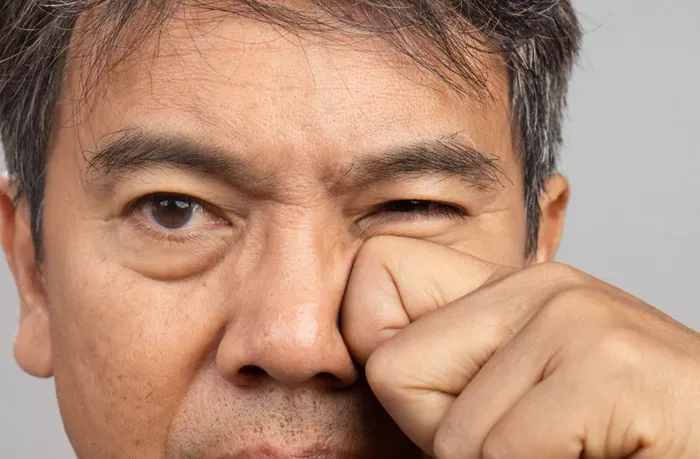Dr. Punam Krishan, a regular contributor on BBC Morning Live, offered advice on managing eye twitching during a recent appearance on the show. The general practitioner, who gained further recognition after appearing on Strictly Come Dancing in 2024, responded to a range of questions from co-hosts Gethin Jones and Sara Cox about eye health.
Sara’s personal experience with eye twitching sparked a deeper discussion on the topic. She humorously explained that after a long day, her eye would often twitch, prompting her husband to think she was winking at him. “It’s just twitchy eyes,” she said, asking Dr. Krishan why this happens.
Dr. Krishan provided a reassuring response, explaining that eye twitching, though often perplexing, is typically harmless. “It’s an involuntary spasm of the muscles around your eyes,” she explained. “It’s nothing to panic about and usually goes away on its own.”
The GP then noted that lifestyle factors are a common trigger for such symptoms. She inquired about Sara’s rest habits, alcohol consumption, and caffeine intake, all of which can contribute to muscle spasms. “Are you getting enough rest? Have you had too much coffee today?” Dr. Krishan asked, emphasizing that factors like stress and screen time can exacerbate eye twitching.
Highlighting the impact of modern lifestyle, Dr. Krishan explained how stress, anxiety, and prolonged screen use can strain the eyes and trigger spasms. “Take regular breaks from screens, watch your stress levels, and make sure you’re hydrating enough,” she advised. “Reducing caffeine intake is another important factor.”
However, if lifestyle adjustments don’t resolve the issue, Dr. Krishan suggested considering nutritional imbalances, such as magnesium deficiency, which can also cause muscle twitches. “If the twitching persists after addressing lifestyle factors, it’s a good idea to see your GP for blood tests to rule out other potential causes,” she recommended.
Co-host Gethin Jones then asked for general advice on maintaining good eye health. Dr. Krishan stressed the importance of regular eye check-ups with opticians, noting that many people take their eye health for granted until an issue arises. “It’s essential to stay on top of eye exams to detect problems early,” she advised.
The NHS also provides guidance on eye twitching, explaining that while common, the condition is rarely serious. According to their website, most twitches go away on their own, but if a twitch lasts for more than two weeks, it’s advisable to consult a GP. The NHS further highlights that common causes of eye twitching include excessive caffeine or alcohol consumption, stress, exhaustion, and certain medications.
If twitching persists or occurs in multiple areas of the body, or if it is accompanied by weakness or stiffness, medical advice should be sought. For those who suspect their medications may be responsible, the NHS recommends checking the listed side effects.
Related topic:
Vasan Eye Care to Offer Free Glaucoma Tests for World Glaucoma Week
Stem Cell Therapy Offers New Hope for Severe Eye Injuries
Eye Health America Expands with Eye Center of Central Georgia Partnership


